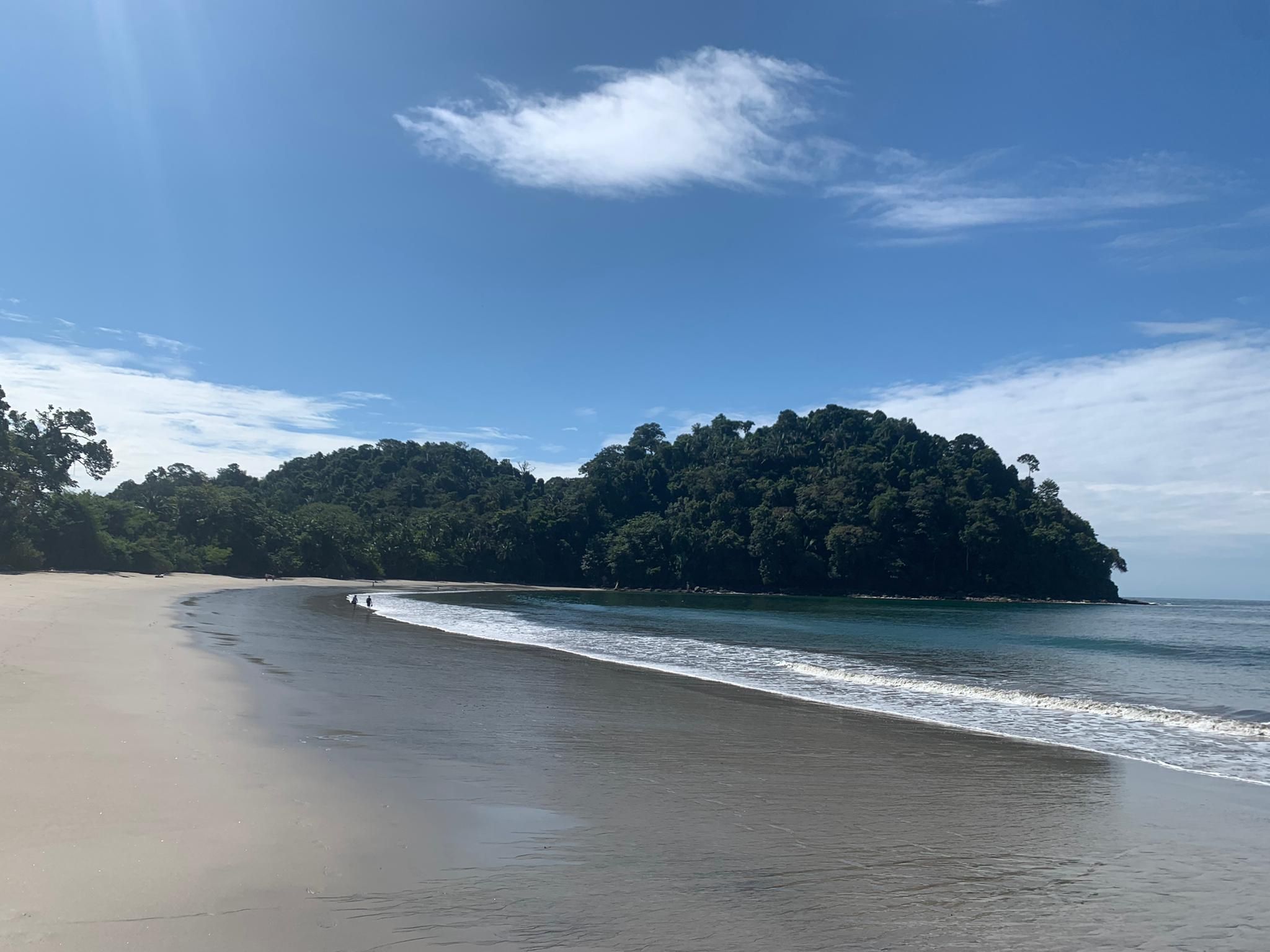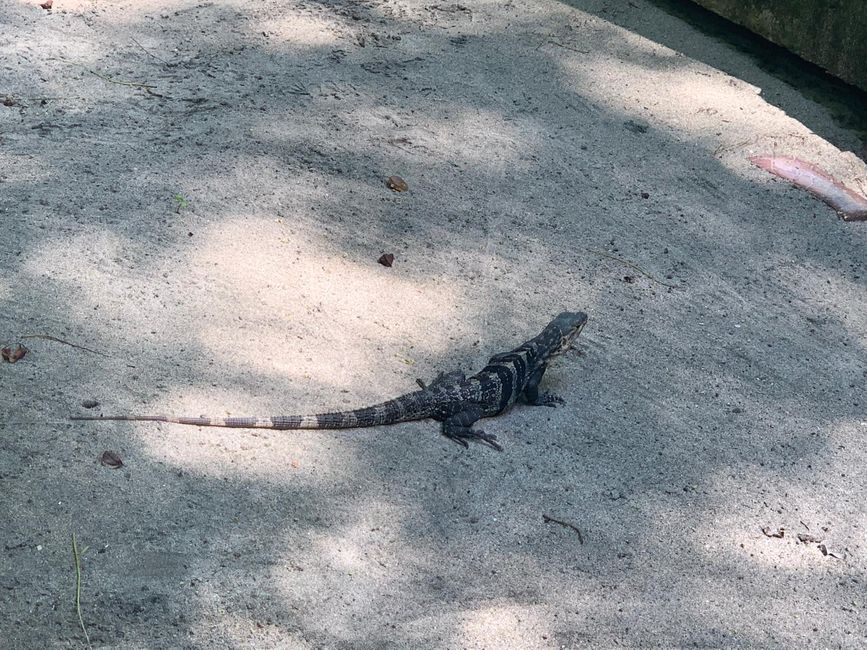Coffee Tour Dota
Naipablaak: 25.01.2022
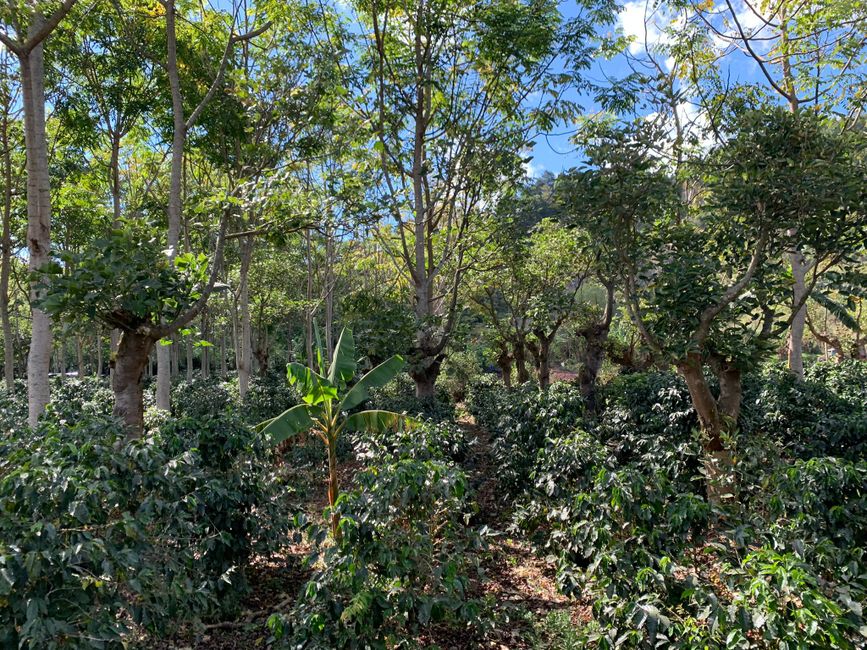
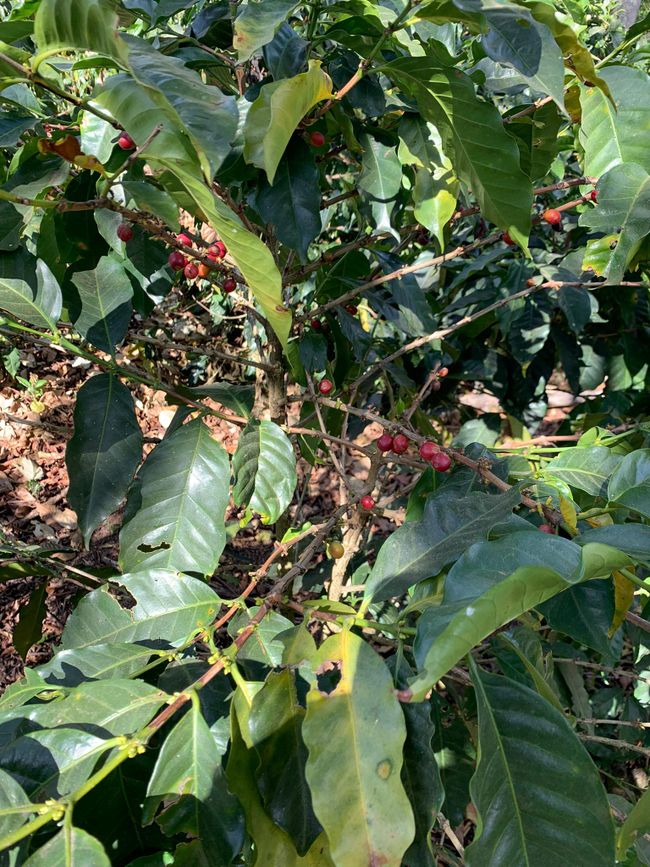
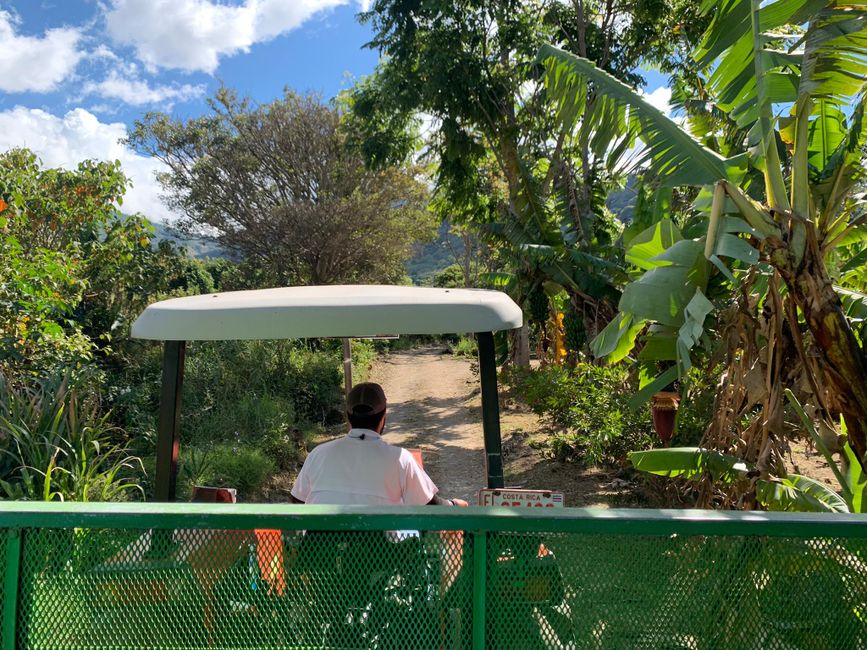
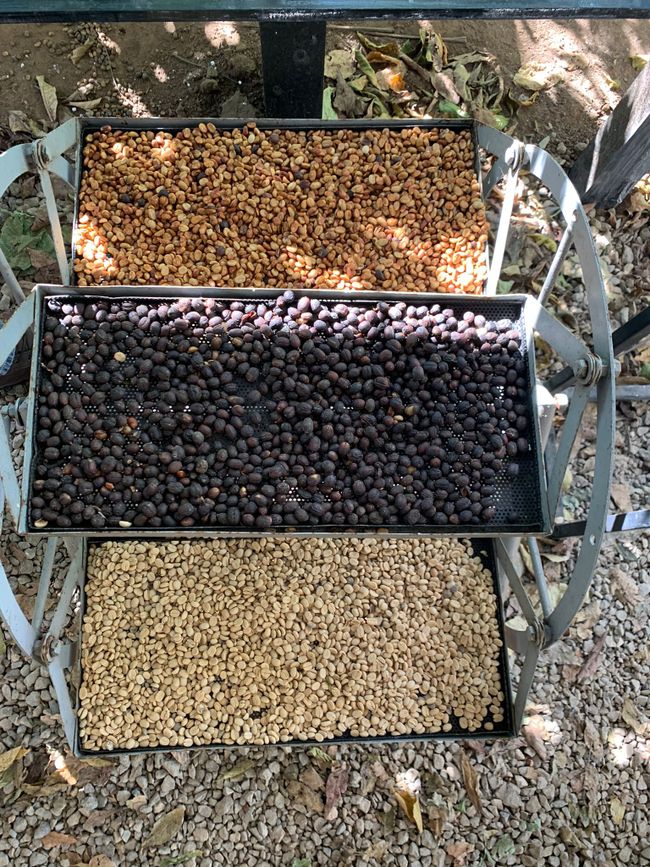
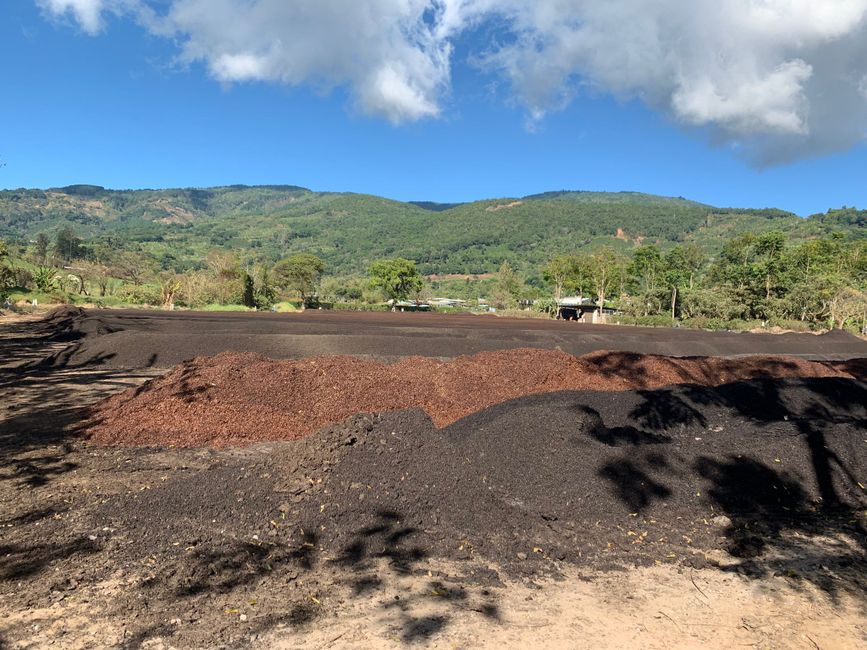
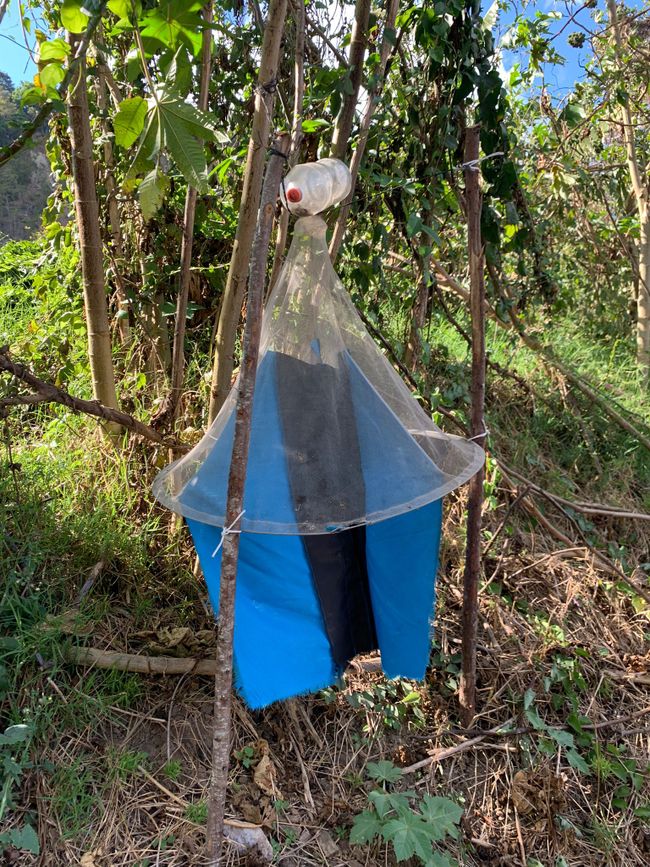
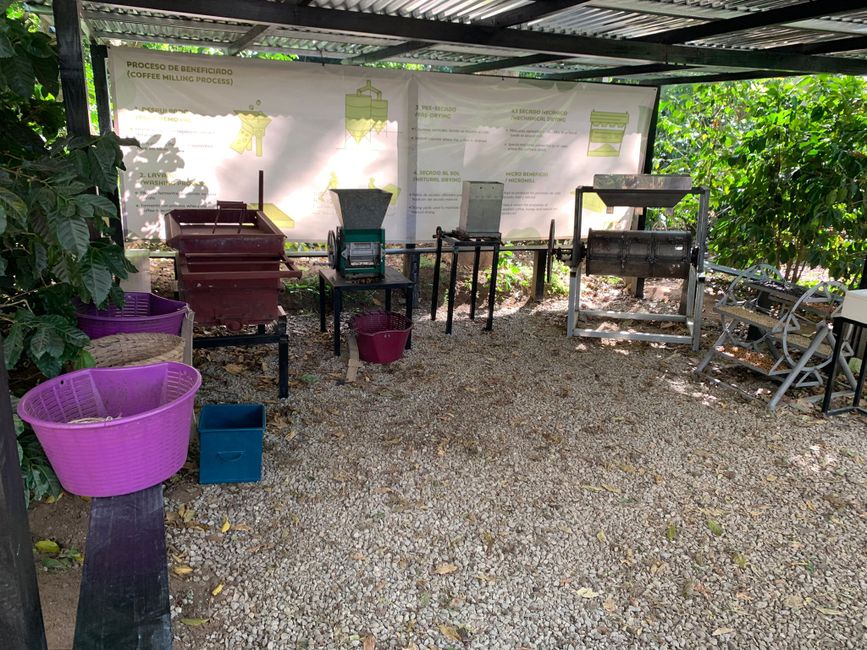
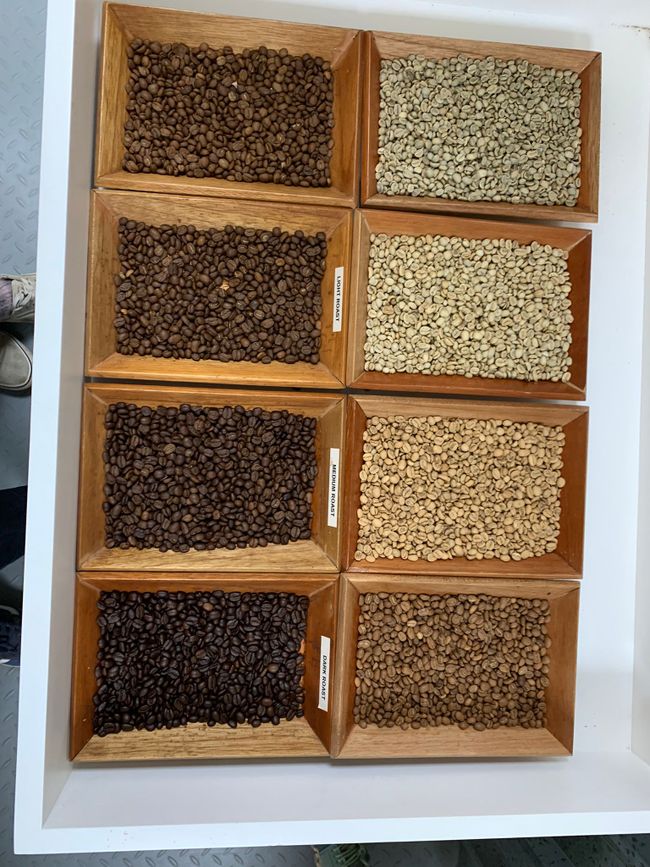
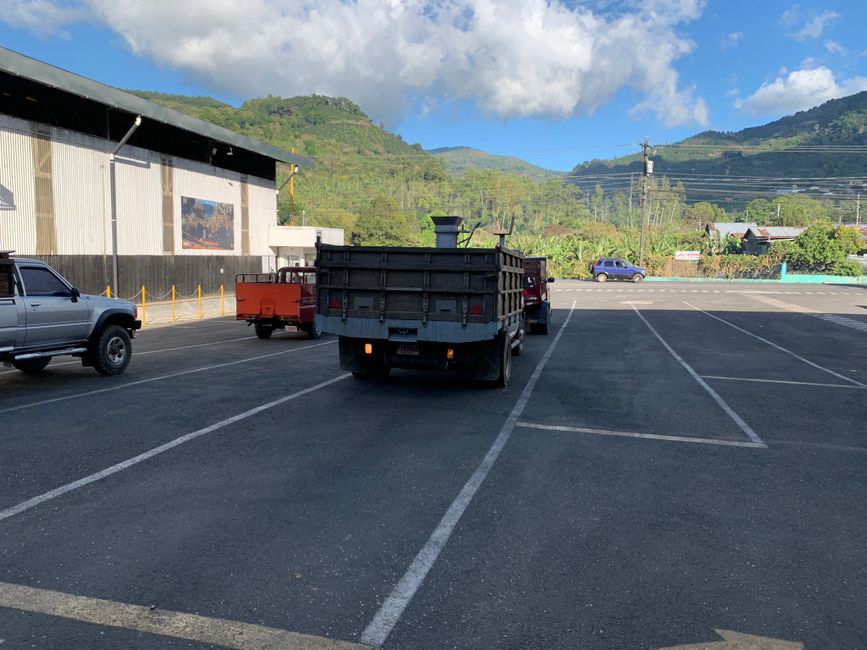
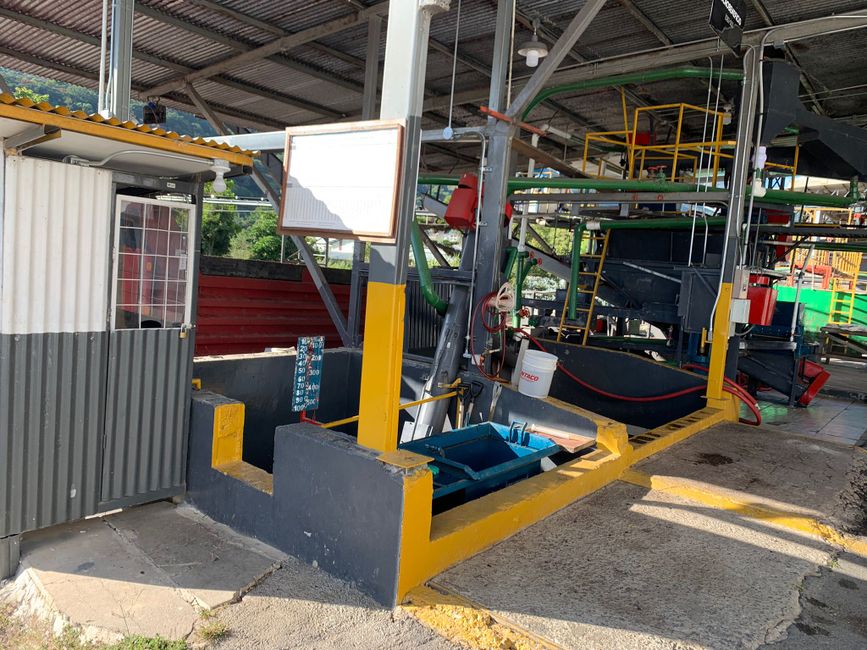
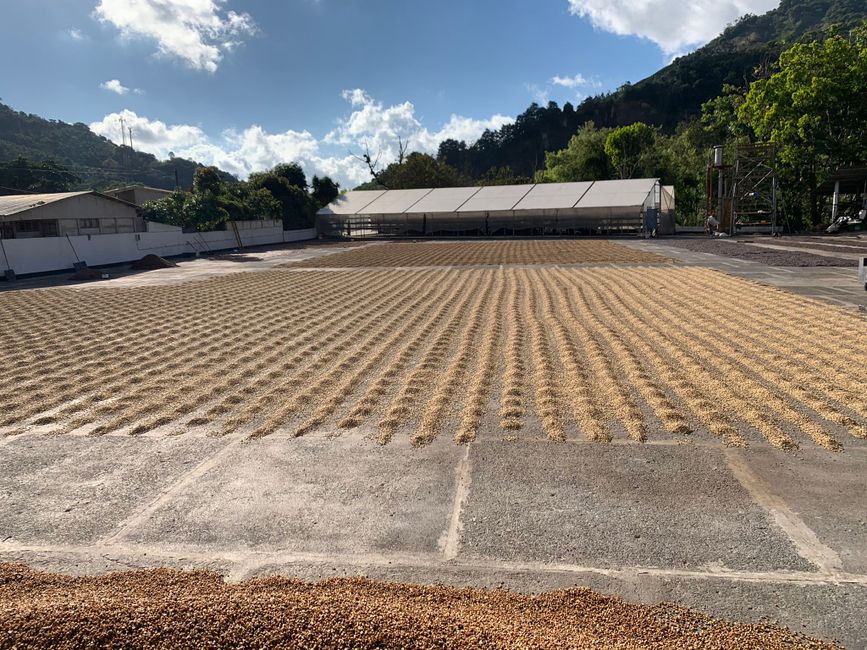
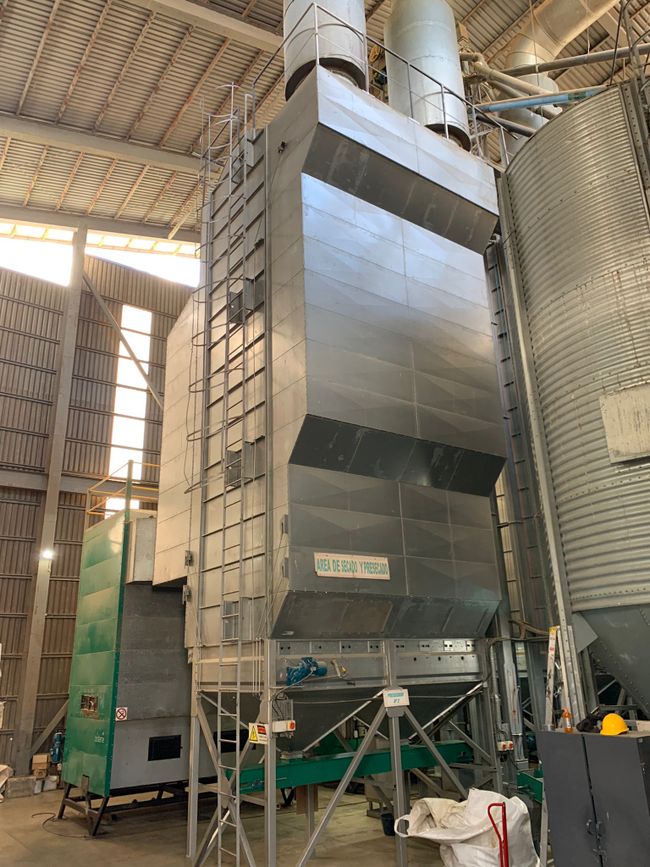
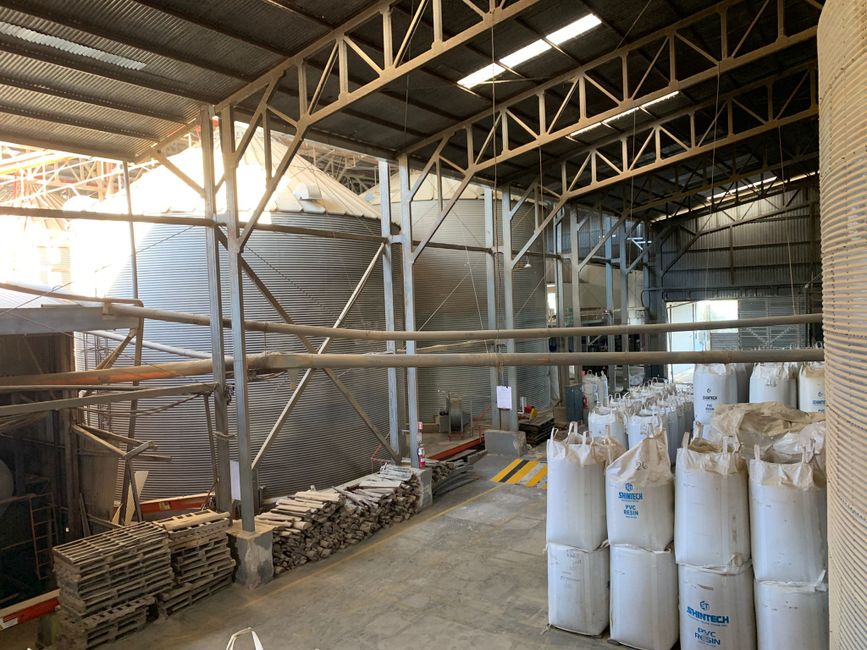
The company Coopedota is one of the world's leading coffee producers, producing high-quality coffee and distributing it. We had the opportunity to spend an afternoon with our guide Juan Carlos, getting a behind-the-scenes look at the process from harvesting the coffee berries to the finished coffee. It was impressive to learn that the company operates carbon-neutral and reuses everything that is considered 'waste' or byproduct for production (such as the wood from old coffee plants or the dried husks of the berries as fuel for the drying process). Here are some interesting facts:
- Quality coffee means that only red or yellow coffee beans are picked (green-picked and processed beans mean cheap coffee, which tastes bitter and sour).
- The majority of berry harvesting is done by guest workers from Panama or Nicaragua and is very hard work. The slopes are very steep, the sun can be intense, and there are many insects and poisonous snakes.
- The high-quality coffee bean is called the 'golden bean.' This is because coffee cultivation has brought wealth to Costa Rica.
- There are three methods of processing coffee, which result in different end products: regular coffee (beans are washed), honey coffee (beans are not washed, honey remains on them), natural (berries are dried whole).
- There are three degrees of roasting (light, medium, dark). We both always thought that dark roast was associated with a high caffeine content. However, it is exactly the opposite: roasting leads to the loss of caffeine, so beans with a light roast have the most caffeine.
To conclude the tour, we were able to do a coffee tasting and learn how professional coffee tasters assess the quality and taste of coffee. Our task was to differentiate three different types (natural, honey, washed) through tasting. The resolution came at the end. Pascal and I had made exactly the same assessments (without coordinating with each other), but they were completely wrong. At least we apparently have the same taste :D. However, it is extremely difficult to professionally assess the taste of coffee, this requires 5 years of training and the continuous abstention from other drinks besides coffee and water, as well as the avoidance of salt and sugar (in order not to irritate the taste buds). We definitely learned a lot of interesting things on this afternoon and can now definitely assess when it comes to quality coffee and when it does not.
Sungbat
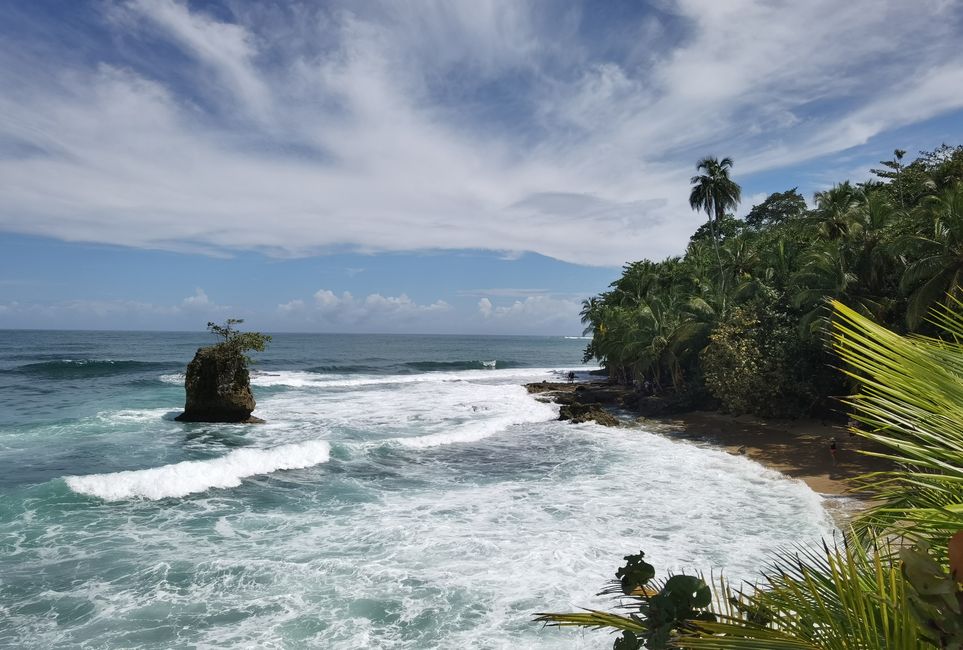
Dagiti report ti panagbiahe Costa Rica nga
